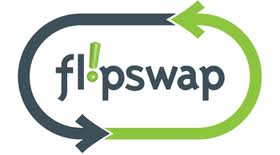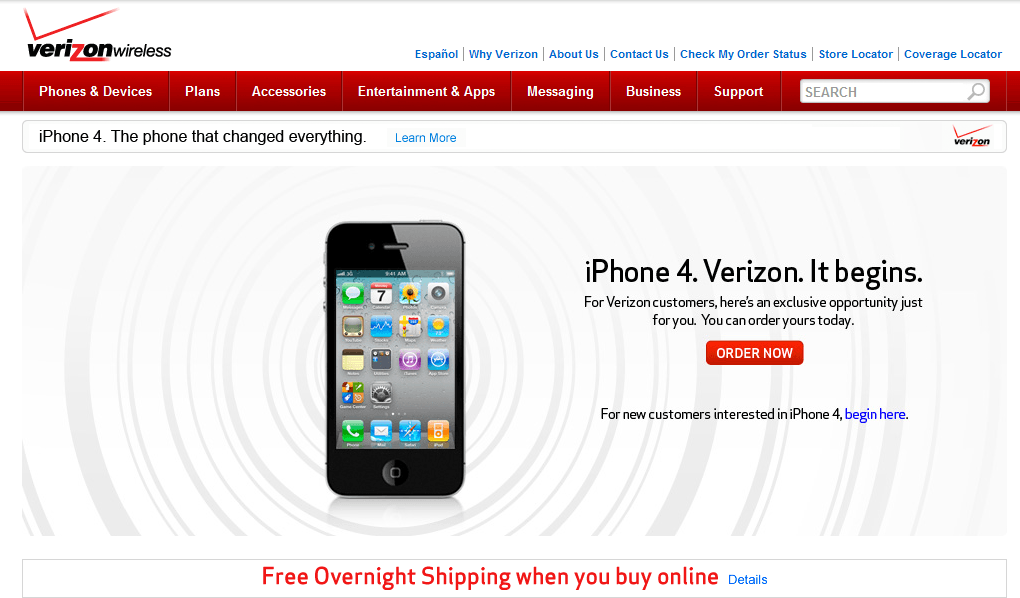 Verizon Wireless isn’t entirely rolling out the welcome mat for new iPhone customers. PreventCAPS, one of our regular readers, dropped us a note indicating Verizon quietly added something new to the terms and conditions for new customers as of Feb. 3rd, which just so happens to coincide with the date the company started taking orders for the Apple iPhone — it reserves the right to throttle your speeds and “optimize” your browsing experience with caching and network management techniques that could reduce the quality of online videos and other bandwidth-intensive graphics.
Verizon Wireless isn’t entirely rolling out the welcome mat for new iPhone customers. PreventCAPS, one of our regular readers, dropped us a note indicating Verizon quietly added something new to the terms and conditions for new customers as of Feb. 3rd, which just so happens to coincide with the date the company started taking orders for the Apple iPhone — it reserves the right to throttle your speeds and “optimize” your browsing experience with caching and network management techniques that could reduce the quality of online videos and other bandwidth-intensive graphics.
Important Information about Verizon Wireless Data Plans and Features
As part of our continuing efforts to provide the best experience to our more than 94 million customers, Verizon Wireless is introducing two new network management practices.
We are implementing optimization and transcoding technologies in our network to transmit data files in a more efficient manner to allow available network capacity to benefit the greatest number of users. These techniques include caching less data, using less capacity, and sizing the video more appropriately for the device. The optimization process is agnostic to the content itself and to the website that provides it. While we invest much effort to avoid changing text, image, and video files in the compression process and while any change to the file is likely to be indiscernible, the optimization process may minimally impact the appearance of the file as displayed on your device. For a further, more detailed explanation of these techniques, please visit www.verizonwireless.com/vzwoptimization
If you subscribe to a Data Plan or Feature on February 3, 2011 or after, the following applies:
Verizon Wireless strives to provide customers the best experience when using our network, a shared resource among tens of millions of customers. To help achieve this, if you use an extraordinary amount of data and fall within the top 5% of Verizon Wireless data users we may reduce your data throughput speeds periodically for the remainder of your then current and immediately following billing cycle to ensure high quality network performance for other users at locations and times of peak demand. Our proactive management of the Verizon Wireless network is designed to ensure that the remaining 95% of data customers aren’t negatively affected by the inordinate data consumption of just a few users.
 These kinds of “network management” techniques, which include speed throttles, reduced quality graphics, and caching (which can result in stale web pages being served to your mobile device), are all made possible by the Federal Communications Commission’s failure to implement Net Neutrality protections for wireless providers. While Verizon stresses it will treat all content to the same network management techniques equally, the “improved” broadband experience Verizon claims to offer is more likely to improve the company’s bottom line from reduced spending on network upgrades.
These kinds of “network management” techniques, which include speed throttles, reduced quality graphics, and caching (which can result in stale web pages being served to your mobile device), are all made possible by the Federal Communications Commission’s failure to implement Net Neutrality protections for wireless providers. While Verizon stresses it will treat all content to the same network management techniques equally, the “improved” broadband experience Verizon claims to offer is more likely to improve the company’s bottom line from reduced spending on network upgrades.
Like most providers, Verizon isn’t willing to be specific about what amount of usage is likely to trigger the throttle, why it needs to be maintained for the remainder of the billing cycle even when network congestion is not a problem, and what speed customers will be stuck with for the rest of the month.
Broadband Reports reached out to Verizon for specifics and discovered the provider has not actually implemented these measures… yet:
“The notice yesterday simply reserves the right for new customers or renewing their contracts,” Verizon spokesman Jeffrey Nelson tells Broadband Reports. “We’re reserving the right to actively manage the network in specific ways should that need exist – and only for customers who are under contract that includes that provision,” he says. “Because this is down the road – if at all – it’s too early to tell what those triggers might be, or what throughput limitations would look like.”
Verizon may be concerned about the potential impact millions of data-craving iPhone customers will bring to its network in the coming weeks. Existing customers with Android devices or Blackberry handsets are safe for now — the provision only impacts customers who sign new contracts as of last Thursday.
Verizon says it will retain its unlimited data option (with the right to throttle service) for a “limited time only.”


 Subscribe
Subscribe











